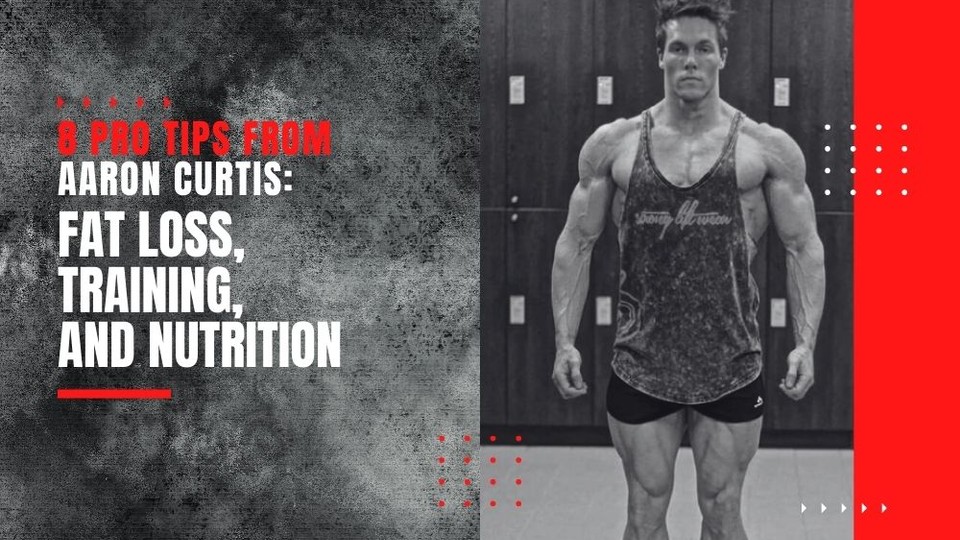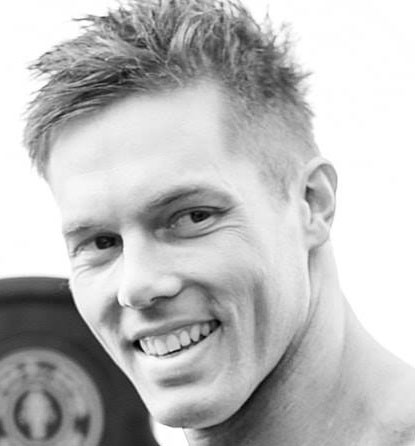In an interview from Alexander Gonciarov, Aaron Curtis shared many insightful tips on fat loss, training, and nutrition. Much of his vast knowledge of training and bodybuilding is derived from numerous years of firsthand experience, where he delved in and out of bodybuilding competitions and underwent professional training.
Here’s a quick recap of some of his best tips!
1. Cheat meals may not be for everyone.
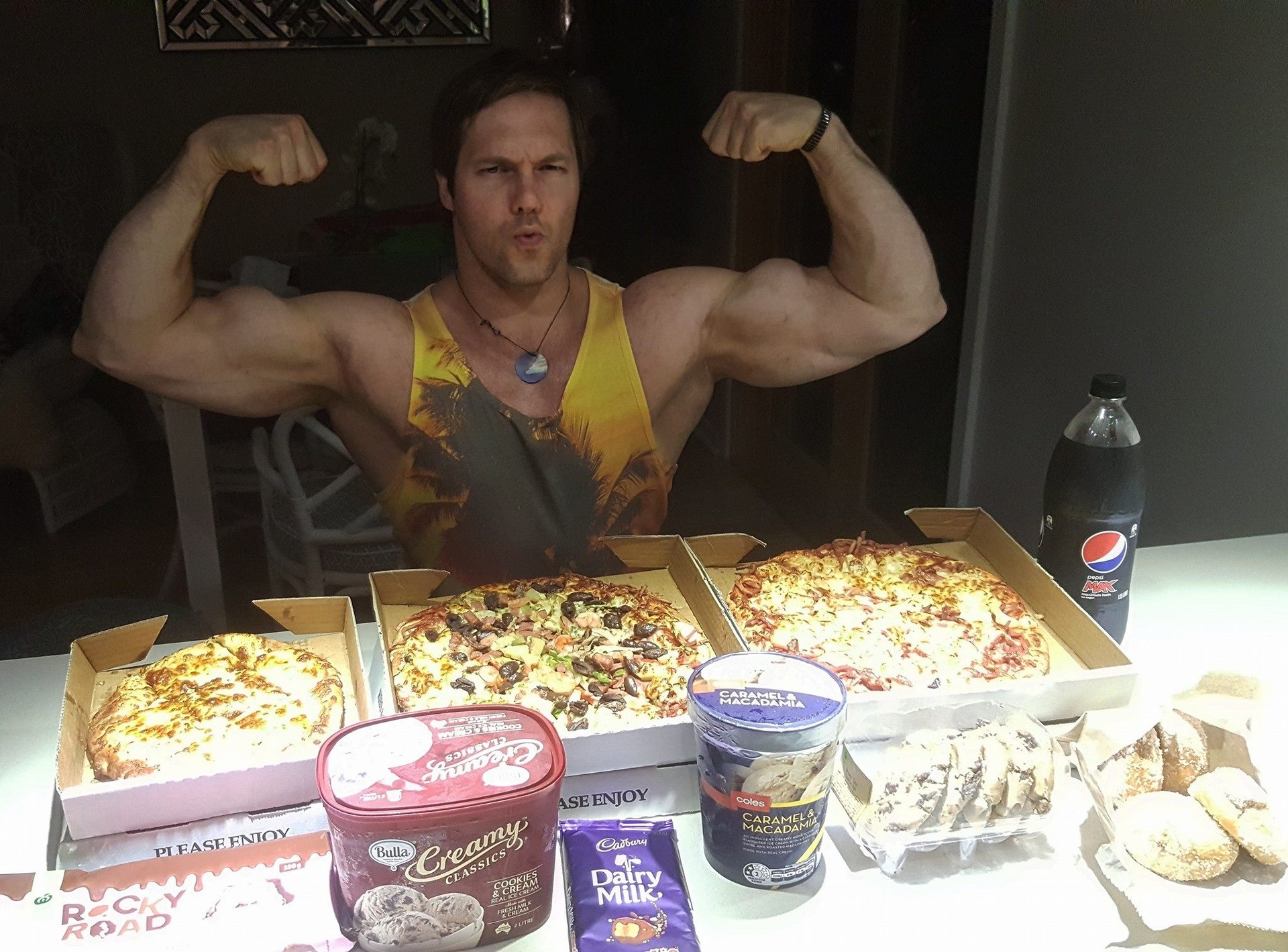
Cheat meals are a common strategy implemented as part of fitness interventions. Once in a while, people are given the green light to indulge in unhealthier foods that would usually be restricted as part of their diet plan. Many people eagerly anticipate their cheat-meal day, and these scheduled meals are said to help curb feelings of deprivation and boost morale.
Aaron has had his fair share of experimenting with the cheat-meal tactic, where he would eat a decently low amount of calories for most days and then leave a single day of the week for the most satisfying and over-the-top meal. While he agrees that those meals are exciting to plan for and a great deal of fun, they hampered his progress at the gym.
Drawing from his own experience, he recommends spreading out your calorie intake more evenly throughout the week. According to him, this may be a wiser approach than having heavily constrained low-calorie meals all through the week and then going out with a bang by devouring one massive meal loaded with thousands and thousands of calories.
So, I feel it would be much more beneficial and much more optimal, with regards to training, if you ate more calories every day and just didn’t leave room for a cheat meal. But cheat meals, I find, are more of a psychological thing than a physical one. Physically, our body doesn’t need that, but mentally, it can be a great thing because you may enjoy having it.
Aaron shares that it took time, patience, and perseverance to teach himself to forgo cheat meals. Eventually, he managed to overcome those longings, and he no longer craved for them.
Of course, your diet does not have to be overly restrictive. In fact, replacing the cheat-meal system with more evenly portioned calorie intakes throughout the week will allow you more leeway in terms of your daily calorie allowance and food choices. The idea of an immensely calorie-dense meal once a week may not be optimal if you wish to progress in the gym!
2. Don’t underestimate the power of quality sleep.
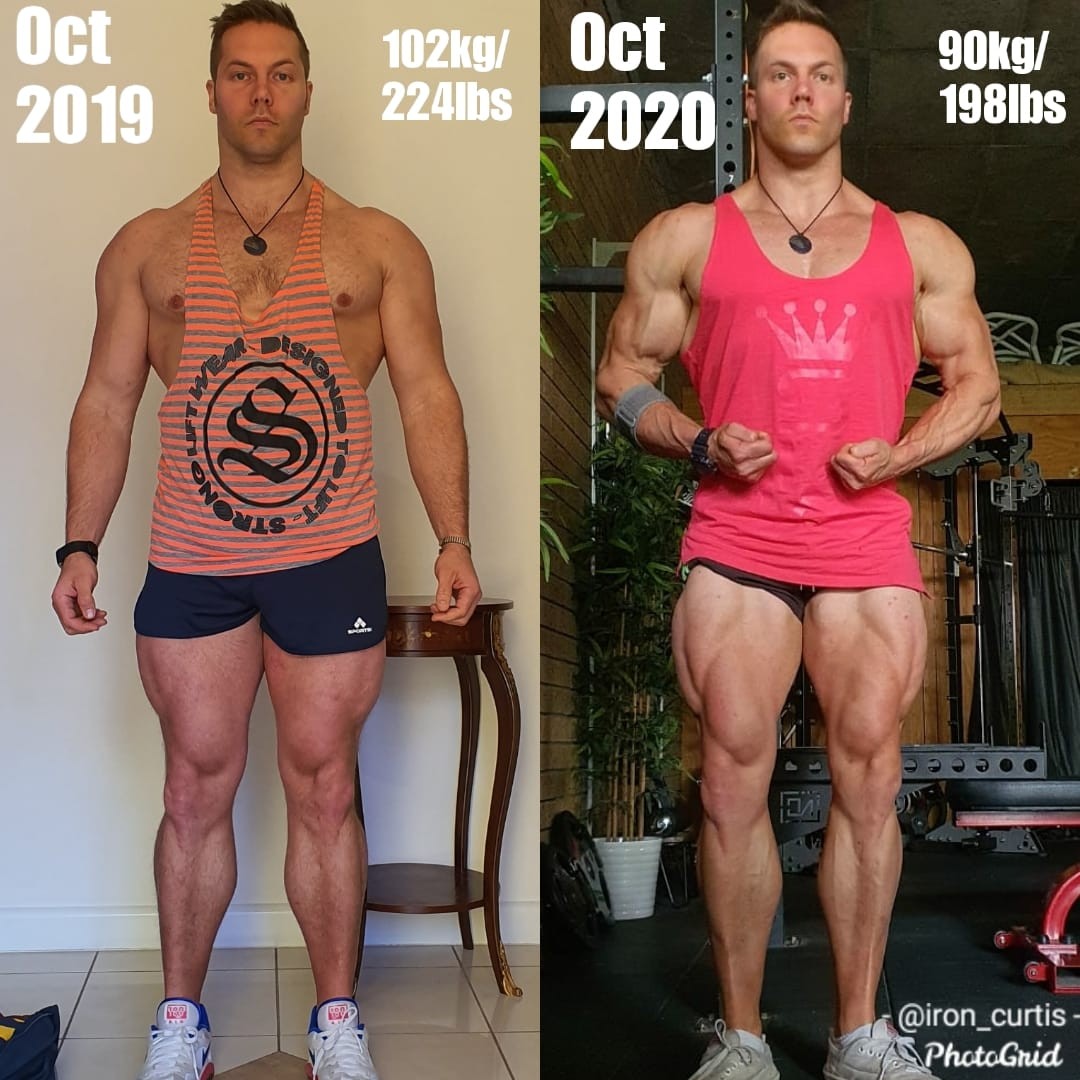
Sleep is a core pillar for the preservation of our physical and mental wellbeing. This idea is likely already ingrained in your mind. Yet, it’s second nature for us to park sleep at the bottom of our priority list. Plus, our packed schedules and hectic lifestyles don’t make it any easier, right?
Nevertheless, Aaron further emphasises why you should get enough good-quality sleep each night. He remarks that our muscles grow and recover during sleep, and a lack of it will hinder the replenishment of our energy levels.
The nutrients and energy obviously come from nutrition, but our muscles are not recovering and growing unless we’re sleeping enough. And if you’re not sleeping enough, then your energy levels will be down.
You will need energy and strength if you undergo arduous training sessions throughout the week. But even if you don’t, getting sufficient sleep ensures that your mind is alert and your body functions optimally the next day. Hence, it’s always best to award sleep with the highest priority on your list!
3. Develop a routine for better sleep.
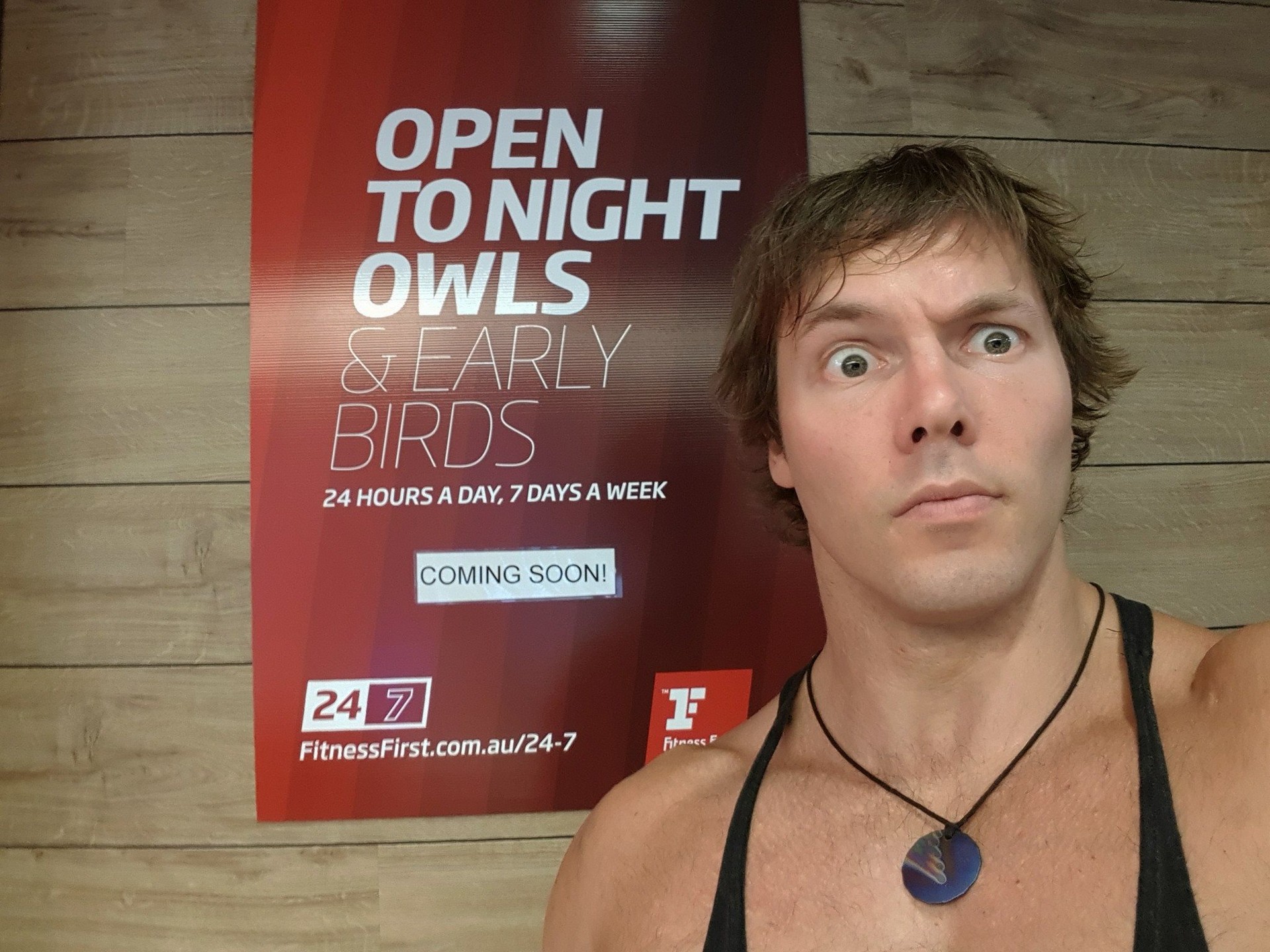
One practical way to make sleep your priority is to set a routine for it. Having ever-changing sleep patterns and erratic sleep schedules can hurl your body clock into a mess and make it more difficult to fall asleep at night.
If you don’t have a fixed sleeping routine, you can start by heading off to bed at the same time each night and getting up at the same time each morning.
I think being in a routine in regards to your sleep is quite important. I think the body gets used to sleeping during certain times. So whatever times you’re used to going to bed and what you’re used to waking up, stick to those. You’ll have a better quality of sleep during those hours.
Additionally, when you catch yourself nodding off in the day, taking a nap might not be the solution. Instead, you can go for a brisk walk or slot in a brief exercise session for an energy boost! Catching a quick snooze in the day may throw off your sleep schedule and make it harder for you to fall asleep at night.
4. Depending on your goals, cardio workouts may not be the emphasis.
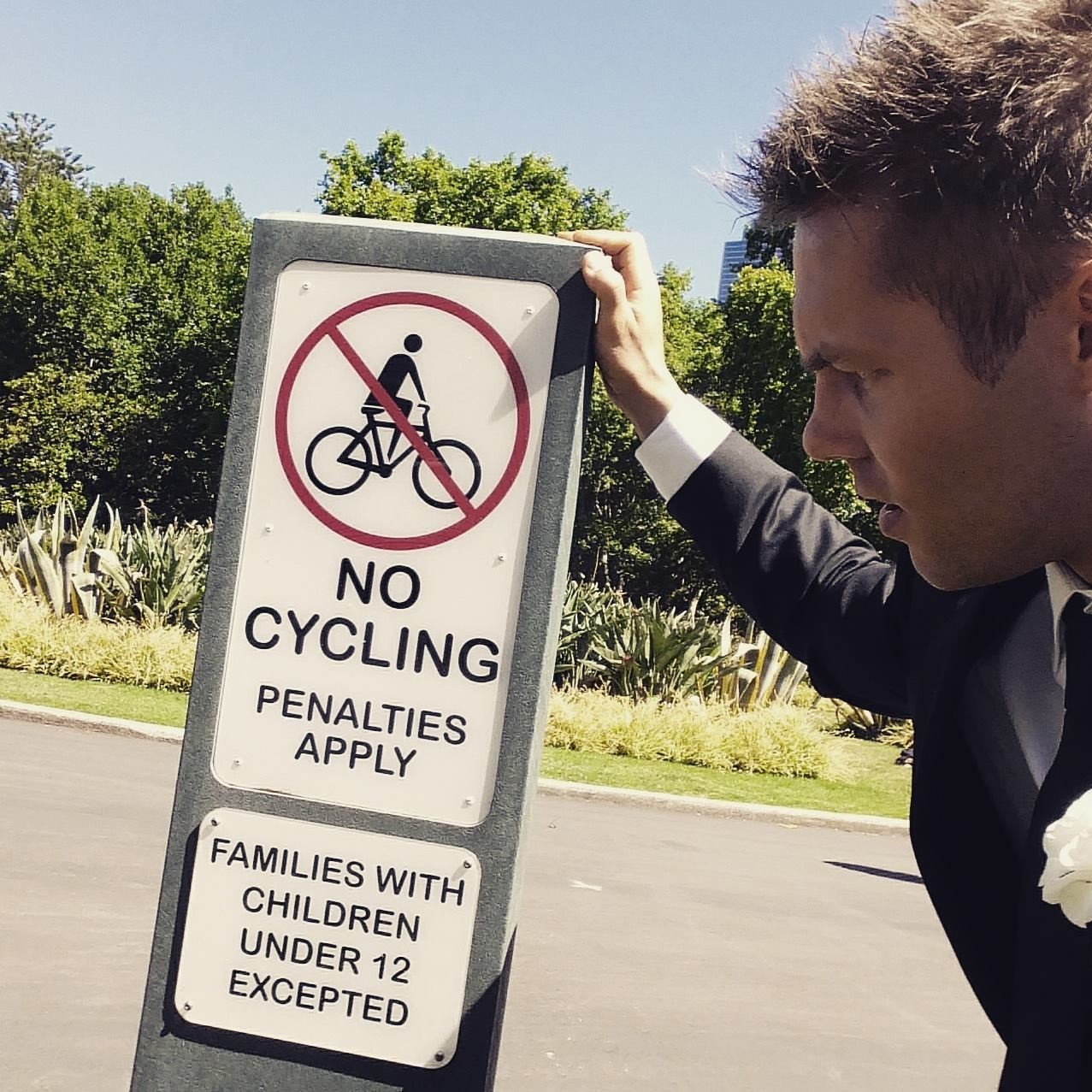
Everyone has varying fitness goals, and if you’ve anchored your focus towards getting bigger and stronger, Aaron clarifies that doing a lot of cardio exercises may be counterproductive. This does not mean you have to cross cardio off your list, but do be mindful of the amount of training time and effort you allocate to doing cardio.
Let’s say you’re looking to grow muscles, get stronger, or even just maintain muscle. If you’re doing an hour or more of cardio day, I think you’re probably hindering the results.
So if you’re bodybuilding, Aaron recommends easing the emphasis off cardio and shifting that focus onto adapting an aerobic style of resistance training, as this will better encourage muscle growth.
On the flip side, what if your fitness goal is fat loss or weight loss? In that instance, Aaron remarks that you can either eat at a calorie deficit and focus more on weight training or steer more towards cardio if you’re not too keen on cutting back on your daily caloric intake.
5. Restrictive diets are not necessarily the gold-standard approach.
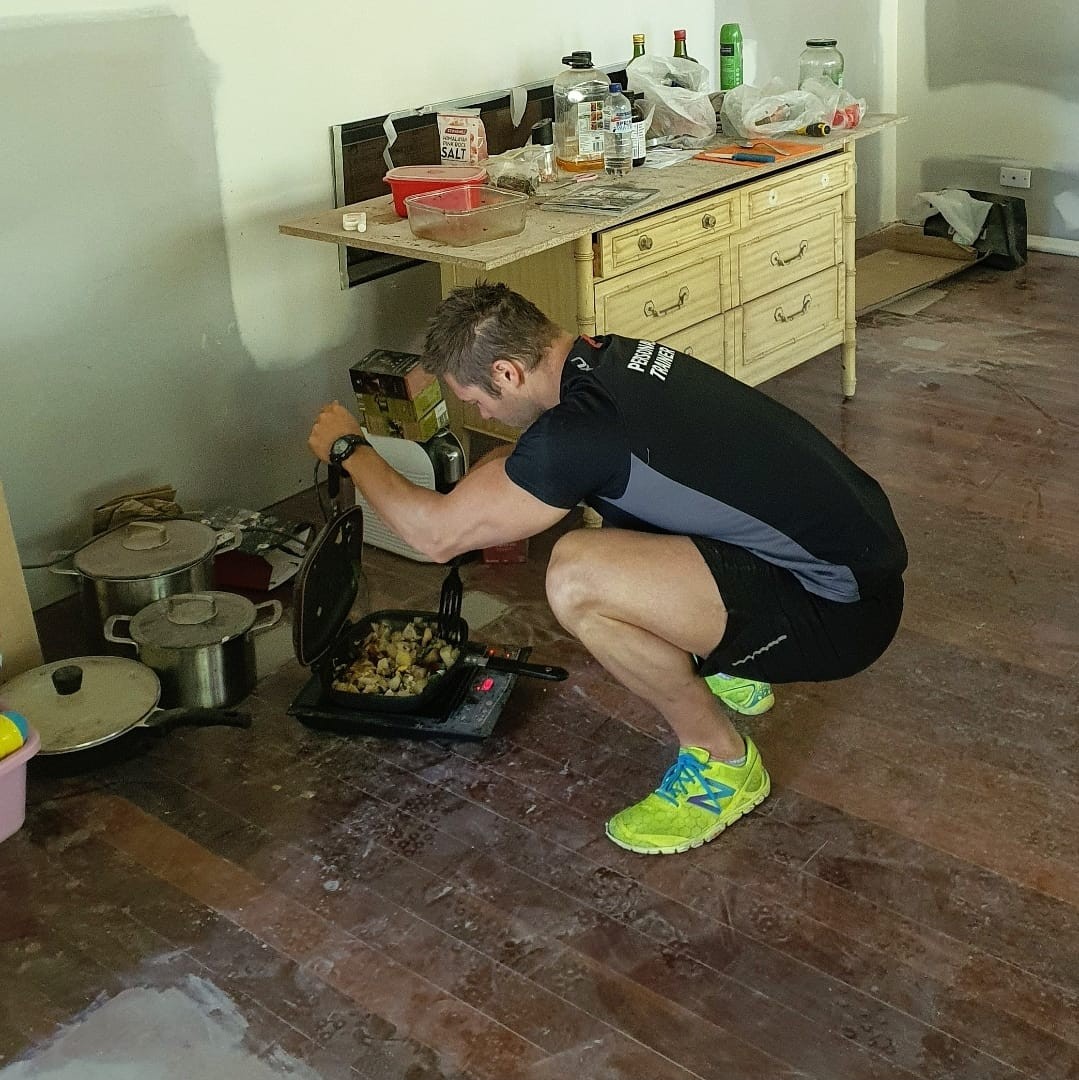
At the mention of the word ‘diet,’ our mind immediately pivots towards restrictions. While that is partially true, adopting an overly restrictive diet can turn the tables on you and bring more harm than good.
If you’re an elite professionally-trained bodybuilder with numerous competitions just around the corner, then this may not apply to you. However, if you’re the average Joe working on getting a little bigger and stronger, or maybe leaner at the gym, then you don’t necessarily have to adopt heavily restrictive diets.
While eating healthy, unprocessed, and clean foods is optimal, drastic and extreme dietary changes are less likely to be sustainable. In contrast, it would be more realistic for the average person to anchor their focus on foods they enjoy and then gradually incorporate more lean meat and vegetables into their daily meals.
If you’re asking what’s more achievable for the average person, then they should probably focus more on the foods they enjoy and work that into their calories and their macros. And obviously, try and add as much lean meat, vegetables, and stuff like that to the diet as you can. But you can’t expect most people to eat 100 % unprocessed stuff 100% of the time.
In short, set realistic dietary goals and don’t be unnecessarily restrictive with the types of foods you eat. While fad diets may help you lose weight quickly, some of those diets may be highly constrictive and limiting, which may lead to less sustainability in the long run. If you’re unsure what macro ratio and type of diet work best for you, consult a dietitian or your healthcare professional, especially if you have a medical condition.
6. Spread your protein feeds throughout the day.
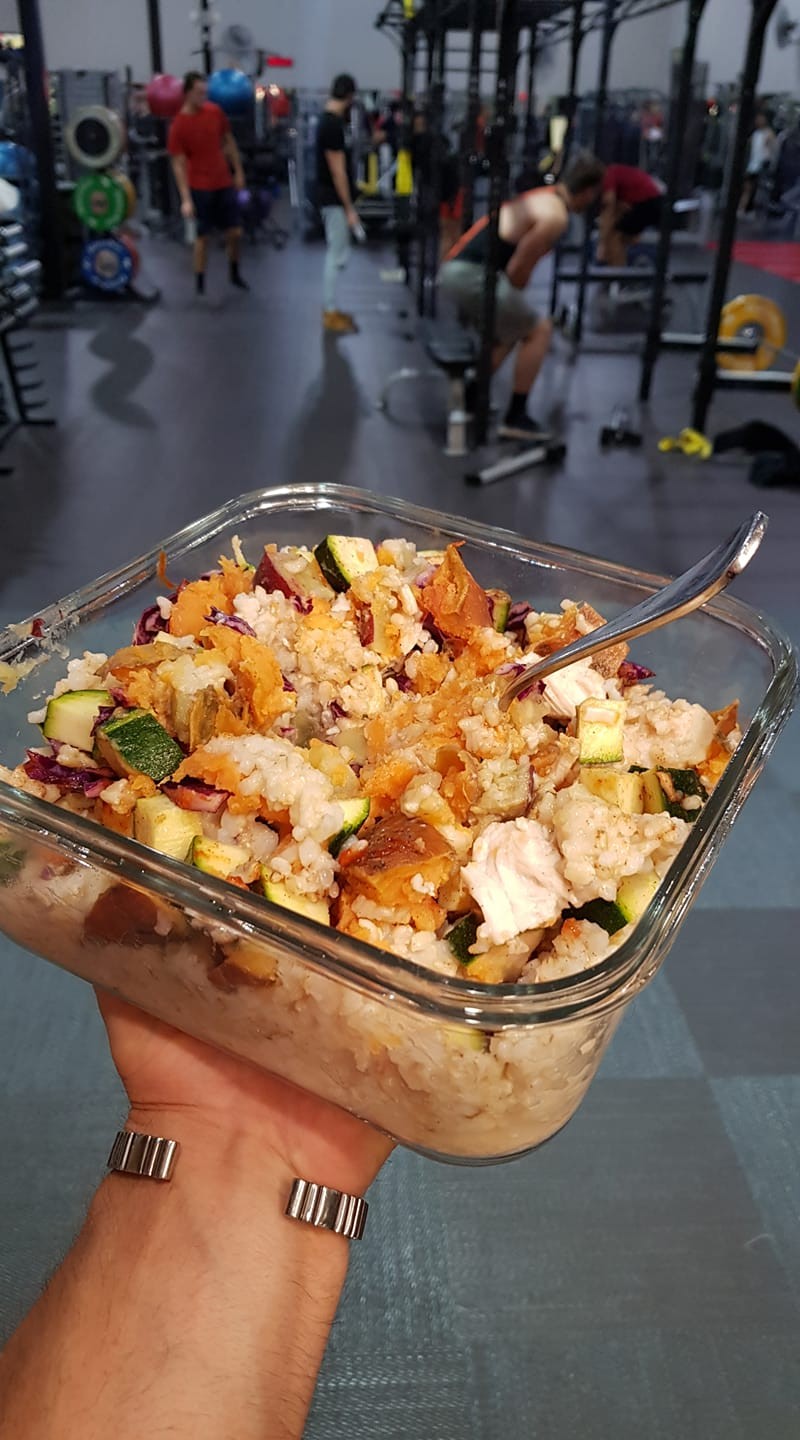
Splitting up your protein intake into multiple feedings per day is highly advisable if you’re looking to gain muscle. Nevertheless, do consider your sleep schedule when planning your protein feeding times. Typically, many people eat between 4-6 feedings per day to gain muscle mass, and Aaron recommends having a buffer time of 3-4 hours between feeds.
It’s the period after you have a protein meal when your protein levels spike, and then it comes back down to baseline. Because of this, there’s no point eating every hour. It’s best to space it out a bit more than that, and 3 hours or 4 hours would probably be a decent period to have between your protein feedings.
Additionally, you don’t have to limit your protein intake to just casein. You could shuffle around the various types of proteins, such as eggs, poultry, and lean meat, so you don’t get bored too quickly!
7. Training intensity vs volume.
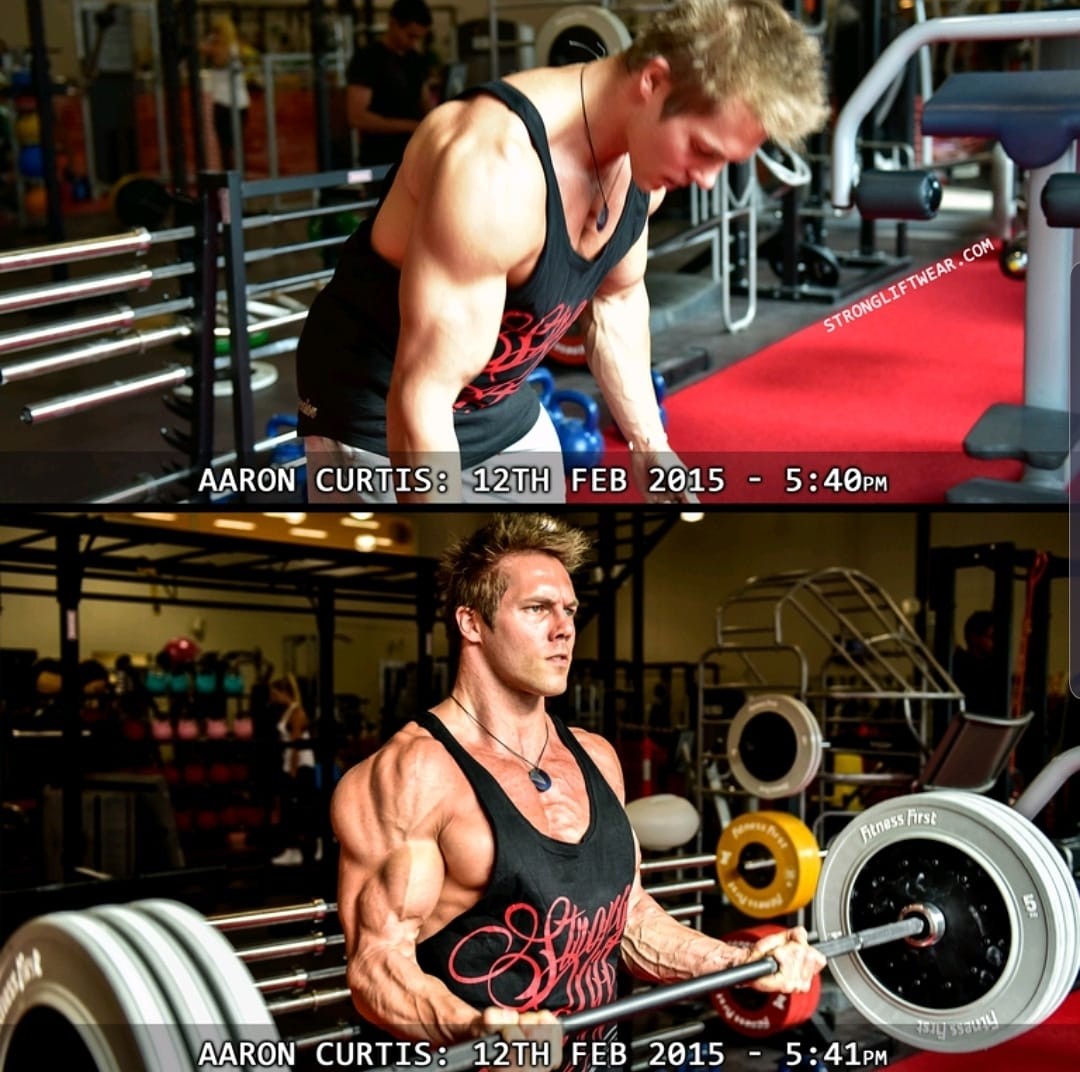
Does intensity trump volume when training? Would you see more progress if you worked out fewer times a week but at a greater intensity? Well, this depends on your personal fitness goal. In that sense, defining your aim and objectives earlier on will guide you in strategising and structuring your workout routines.
Based on Aaron’s extensive experience, there might not be significant observable differences in muscle growth if you train everything once a week instead of twice a week. Hence, if your fitness goals veer more towards gaining muscle mass, then going all out in a single training session each week may suffice.
From my experience with a lot of clients, I get them training everything twice a week on a push-pull leg split. I see it as more beneficial for strength than muscle growth. They definitely get stronger faster. But in regards to getting bigger faster, I don’t really see a difference as opposed to training everything once a week and just smashing it harder for that one session.
Of course, your body is built differently from everyone else’s, plus your personal goals differ. Thus, it may take some trial and error for you to find the perfect balance between intensity and volume for optimal progress.
8. Don’t disregard stretching before your training sessions.
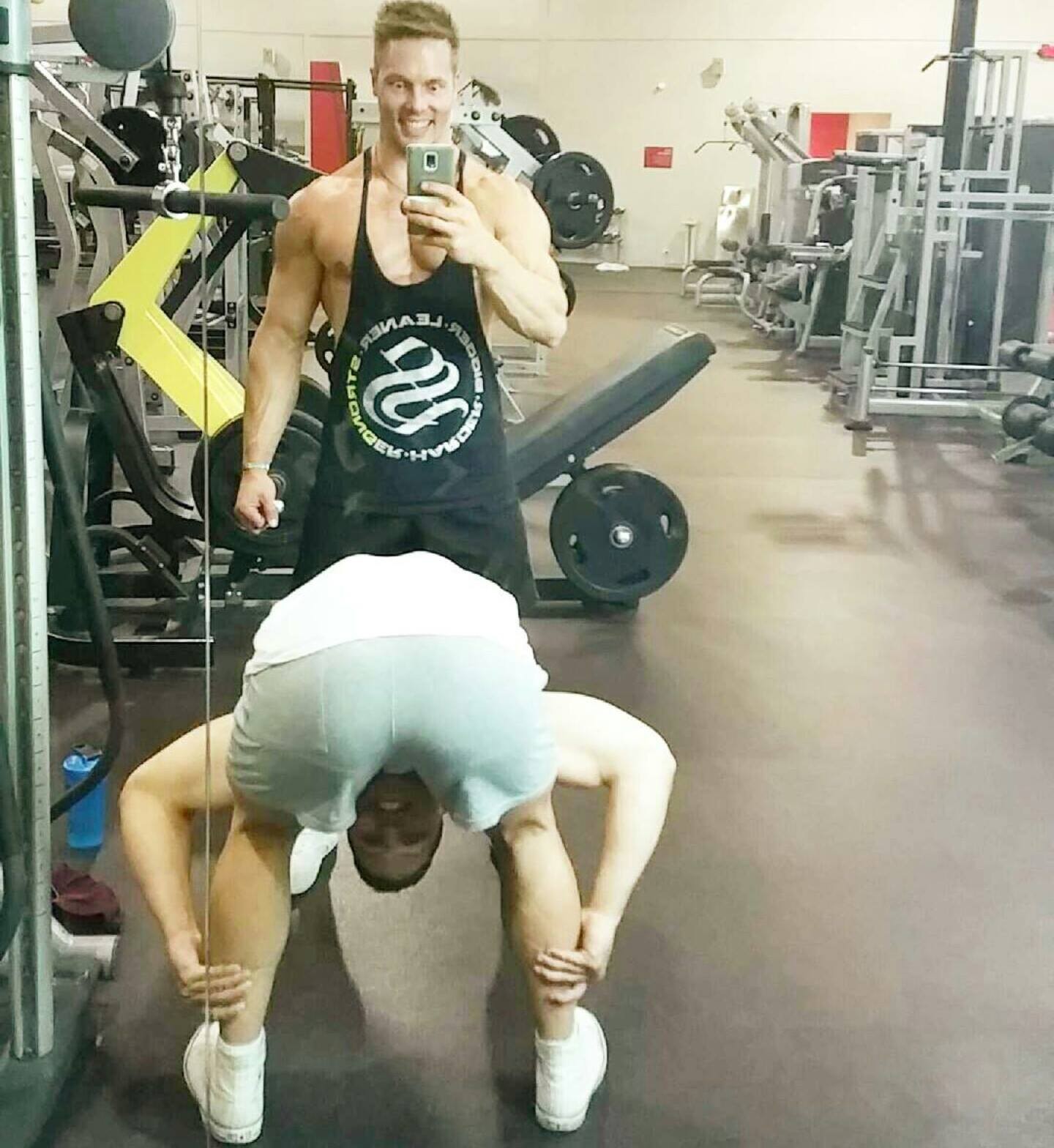
Stretching and warming up before your workout sessions can work wonders, and it’s no surprise that professional athletes, bodybuilders, and gymnasts invest ample time into this before commencing training.
By stretching before working out, you can boost your exercise performance, minimise the risk of injuries, allow your muscles to function more effectively, and enhance your flexibility and range of motion. According to Aaron, stretching pre-training is especially beneficial if you face issues with mobility and flexibility.
So, if you’ve got issues with mobility and flexibility, and say you can’t get your arms on the bar when you squat. Probably then, you would have to go through some stretching exercises so that you can squat more effectively. In that situation, stretching before exercise is very important because you won’t be able to exercise effectively if you didn’t.
However, he clarifies that you can stretch more post-workout rather than pre-workout if you don’t experience any particular mobility or flexibility issues.
Final Takeaway
If you wish to level up your fitness game, it’s always best to take into account your eating habits, sleeping patterns, and workout regimens. Mitigating any of these core pillars will weaken the foundation for optimal performance and progress.
Remember that sustainable progress will take time and perseverance, regardless of your fitness goal, be it losing weight, reducing fat, gaining muscle, or getting a leaner body. And if you’re hesitant to take the first step in the right direction, you may wish to enlist the help of a workout buddy or an accountability coach!
